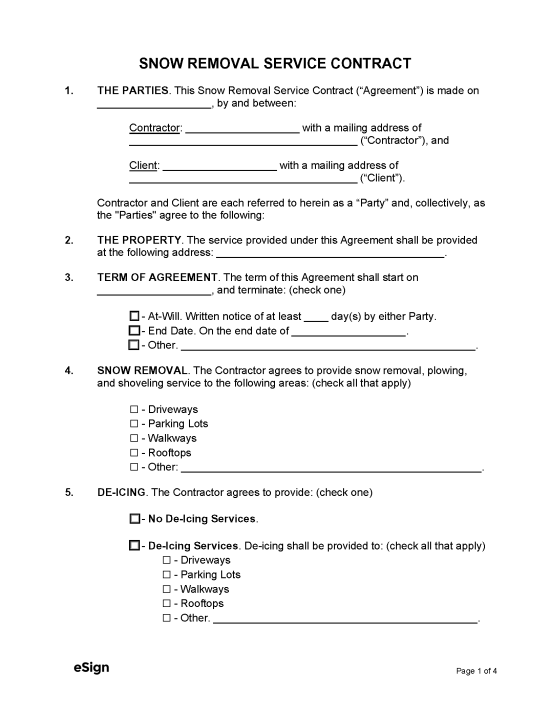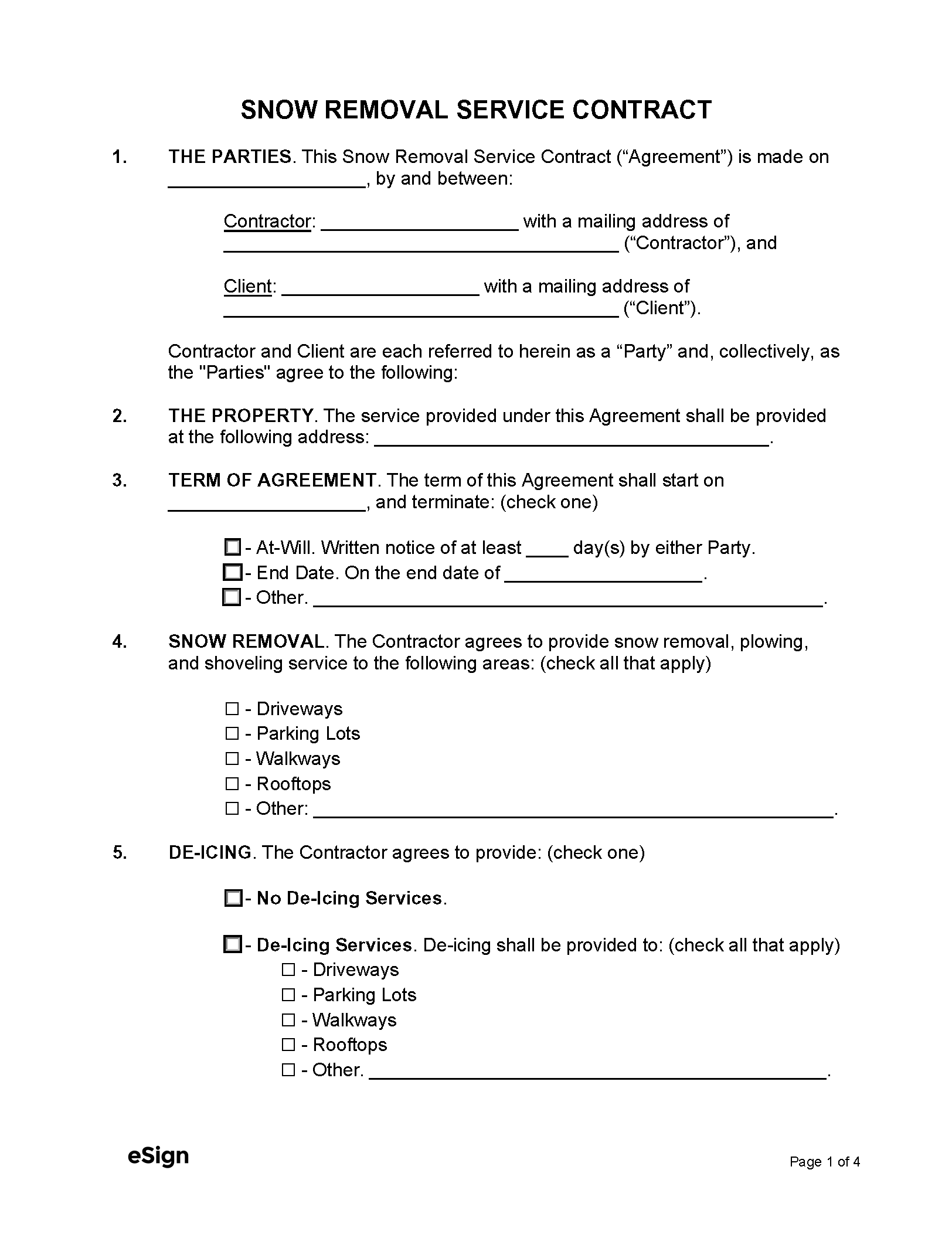7 Clauses to Include
1. Term of Agreement
2. Description of Services
Also known as a “scope of work,” this section describes the services provided by the contractor and often includes:
- Snow Removal – Whether plowing, snow blowing, or shoveling snow. Its “removal” can also mean transferring the snow to another location. The specific areas should be described, such as driveways, parking lots, and walkways.
- De-Icing – This refers to applying salt or other chemicals that cause snow and ice to melt even when temperatures are below freezing.
- Other – If there are any additional services, such as removing snow from rooftops, it should be mentioned in this part of the agreement.
3. Snow Event Trigger
A snow event trigger is a predetermined condition that defines when the contractor is required to perform their services.
4. Compensation
A contractor can be paid in any of the following manners:
- Per Snow Event – No matter the snowfall amount, the cost for the contractor to remove snow and de-ice the property is the same.
- On an Hourly Basis – This method pays the contractor based on the time spent removing snow on the property. This may or may not also include the cost of travel.
- Recurring Payments – For corporate accounts, it is common for a contractor to be hired and receive recurring payments that remain the same no matter how many snow events occur.
5. Client’s Inspection
This section allows for the client to reserve the right to inspect the property after the contractor provides their services.
6. Release of Liability
To protect the interests of both parties, each should have a clause releasing them of liability for circumstances outside their control.
- Contractor’s Release – The contractor should not be liable for damage caused by larger winter storms or “acts of God” outside the contractor’s control.
- Client’s Release – The client should not be liable for injury to the client or their employees, subcontractors, agents, or individuals working alongside them. To further protect the client, they may require the contractor to maintain generic liability insurance.
7. Independent Contractor Status
Sample
Download: PDF, Word (.docx), OpenDocument
SNOW REMOVAL SERVICE CONTRACT
1. THE PARTIES. This Snow Removal Service Contract (the “Agreement”) made on [MM/DD/YYYY] (the “Effective Date”) is by and between [CONTRACTOR NAME], with a mailing address of [CONTRACTOR ADDRESS] (the “Contractor”), and [CLIENT NAME], with a mailing address of [CLIENT ADDRESS] (the “Client”).
2. TERM. The term of this Agreement shall commence on [MM/DD/YYYY] and terminate on the date of [MM/DD/YYYY].
3. SERVICES. The Contractor agrees to provide the following: [DESCRIBE SERVICES TO BE PERFORMED]. Hereinafter known as the “Services.”
4. PAYMENT AMOUNT. The Client agrees to pay the Contractor $[RATE]/Hour for the Services.
5. PAYMENT METHOD. The Client shall pay the Compensation every week, beginning on [MM/DD/YYYY].
6. RETAINER. The Client is REQUIRED to pay a Retainer in the amount of $[RETAINER AMOUNT] to the Contractor as an advance on future Services to be provided (the “Retainer”). The Retainer is Non-Refundable.
7. INDEPENDENT CONTRACTOR STATUS. The Contractor, under the code of the Internal Revenue Service (IRS), is an independent contractor and neither the Service Provider or their employees or contract personnel are, or shall be deemed, the Client’s employees.
8. ADDITIONAL TERMS AND CONDITIONS. [ADD ADDITIONAL INSTRUCTIONS, TERMS, CONDITIONS].
IN WITNESS WHEREOF, the Parties hereto agree to the above terms and have caused this Agreement to be executed in their names.
Client’s Signature: _________________________ Date: _______________
Printed Name: _________________________
Contractor’s Signature: _________________________ Date: _______________
Printed Name: _________________________

